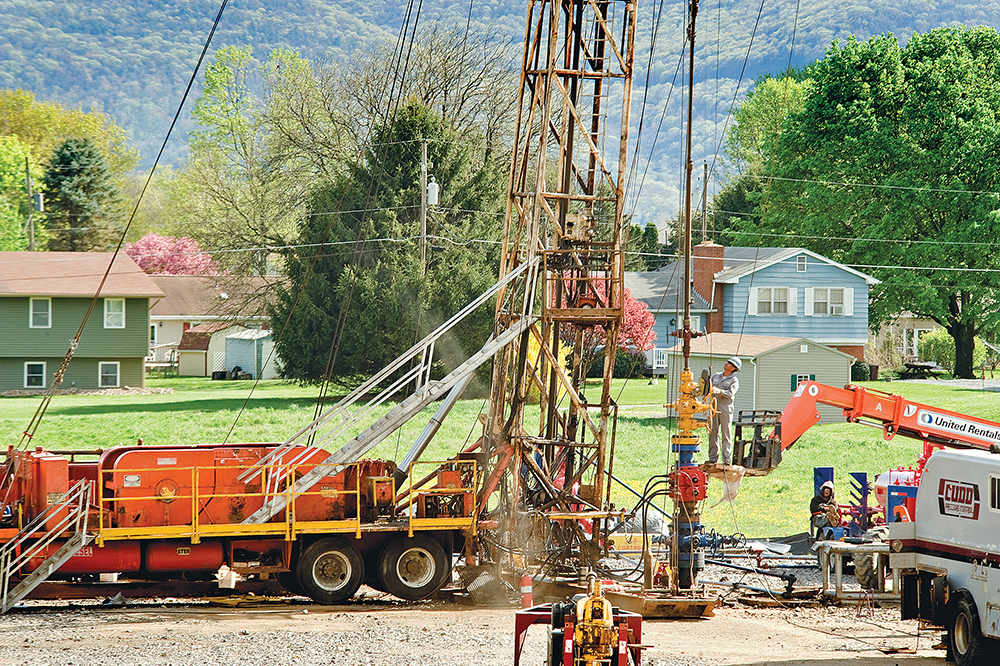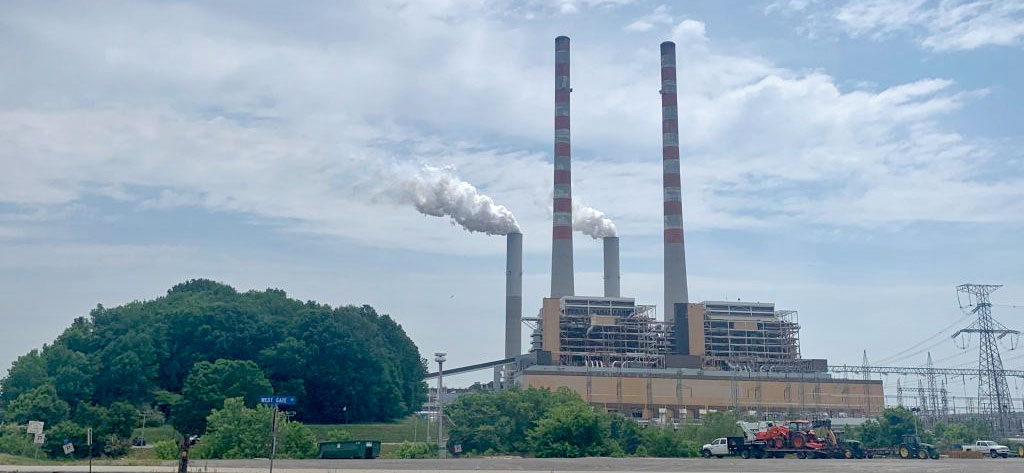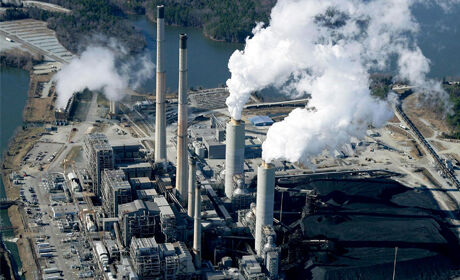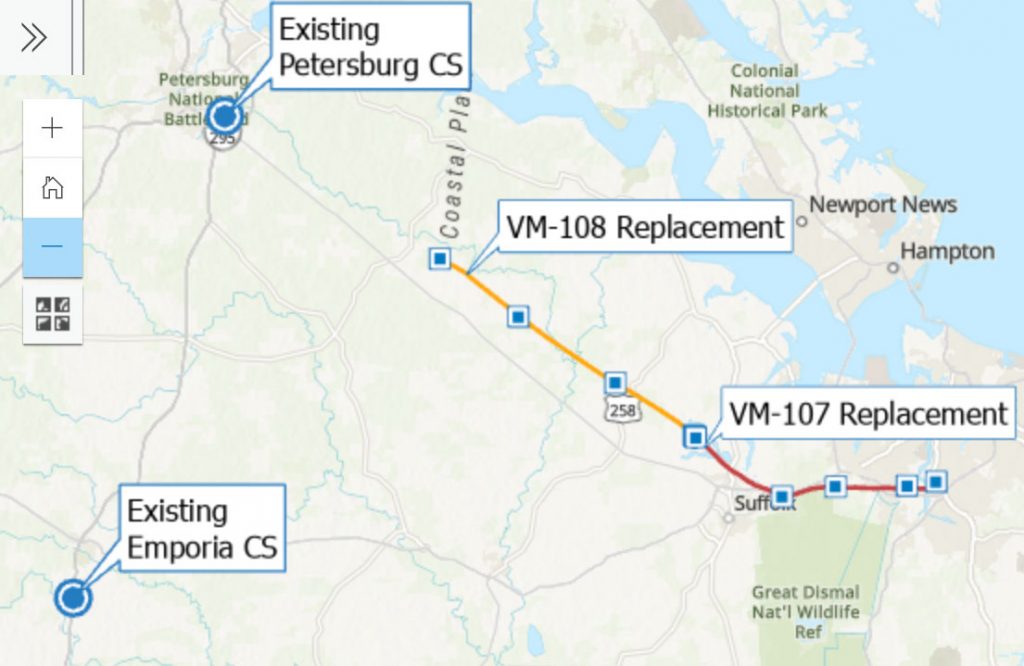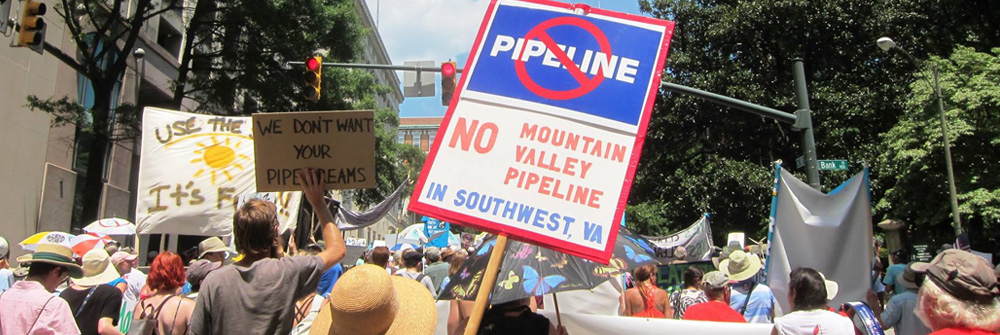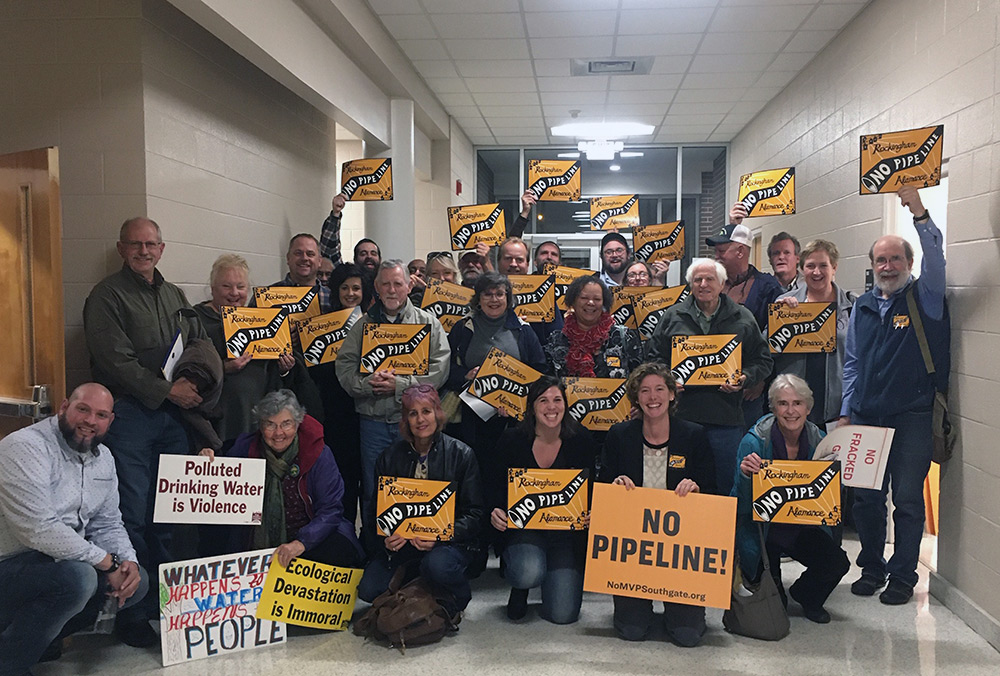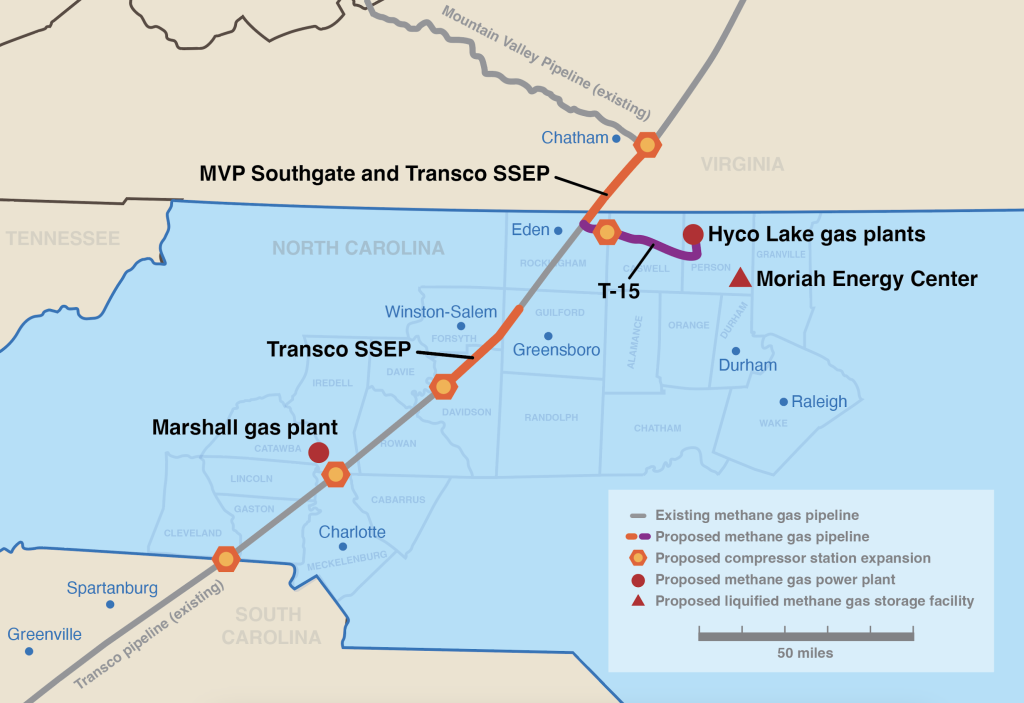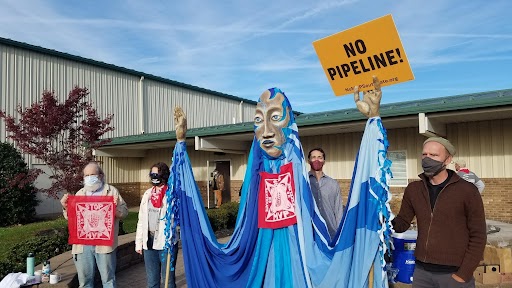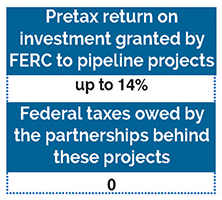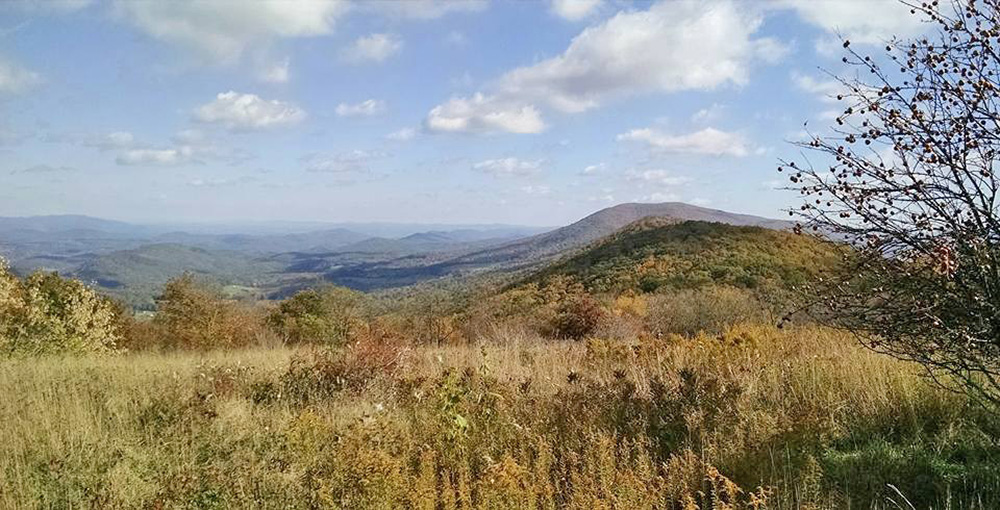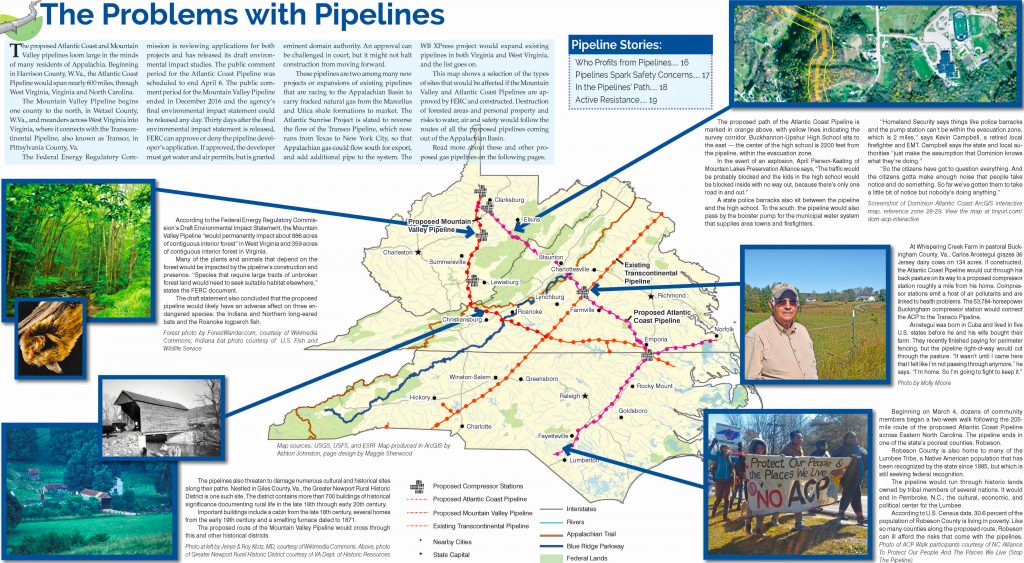Stop Pipelines & Fracked Gas

Photo By Sierra Shamer / Fractracker
Two decades ago, so-called natural gas exploded on the American energy market, pushed by the industry as a supposedly clean “bridge” fuel to transition the economy from dirty coal to renewable sources of electricity generation like solar and wind.
But this gas is far from clean. From the time that it is extracted using a destructive drilling method called fracking, its transport through pipelines, train cars and trucks, to the power plants where it is burned, the dire environmental and human costs of this fossil fuel are now abundantly clear. In particular, this polluting infrastructure is often sited in communities of color, lower-income areas and other environmental justice communities.
Studies show that investments in renewable energy and energy efficiency are on par with, or sometimes more affordable than, building new gas infrastructure. Many states are enacting policies to tap into the rising solar and wind sector. Yet the fossil fuel industry is rushing to build methane gas pipelines and power plants to squeeze as much profit as possible out of the waning fuel, putting most of the financial risk on customers.
Appalachian Voices is tackling the spread of fracked gas head-on by legally challenging fossil fuel proposals and pushing back against the antiquated policies and rubber-stamping agencies that govern the development of gas infrastructure. We are also partnering with communities in the fight against new fossil fuel infrastructure, providing resources and training to bolster local opposition. And we are pressuring decision-makers to force them to consider the harm to communities threatened by polluting energy development.
And the tide is starting to turn. In July 2020, Duke Energy and Dominion Energy canceled the 600-mile Atlantic Coast Pipeline. The massive fossil fuel project was riddled with problems, starting with the fundamental fact it was not needed to meet energy demand. Standing beside the many communities and organizations that made this historic victory possible, we’re taking this momentum and applying it toward the fight against other destructive, climate-harming projects that threaten community safety, our clean air and water, and that would raise electricity costs for residents.

Latest News
Who Profits from the Pipelines?
Expansion of the natural gas infrastructure through constructions such as the Atlantic Coast and Mountain Valley Pipelines carry significant risks to the environment and communities near them. But they also carry significant financial benefits for the companies that build them, which may help explain the rush to build more and more pipelines.
Resistance to Pipelines Across the East
As more and more pipeline projects are proposed to bring fracked gas out of the Appalachian Basin, residents are rising up to voice their opposition and fight to stop the pipelines from endangering their communities.
In the Pipelines’ Paths: Environmental damages to special places
Both the Atlantic Coast and Mountain Valley Pipelines threaten to damage historic and scenic sites along their paths through West Virginia, Virginia and North Carolina. Places such as Bent Mountain and Peters Mountain could be permanently scared, while parts of the Appalachian Trail and the Blue Ridge Parkway could also be impacted.
The Problems with Pipelines
This map shows a sampling of the types of sites that would be affected by the proposed Mountain Valley Pipeline and Atlantic Coast Pipeline. View the print centerspread here while we transfer it to a web-friendly version.
Pipeline Construction Would Scar Appalachian Trail Vistas
If constructed, the proposed Atlantic Coast and Mountain Valley Pipelines would permanently mar several majestic vistas along the Appalachian Trail. Local residents and avid hikers voice concerns.
Pipelines Spark Safety Concerns
While both the Pipeline and Hazardous Materials Safety Administration and industry groups say pipelines are the safest way to transport products like natural gas, pipeline incidents are on the rise.

